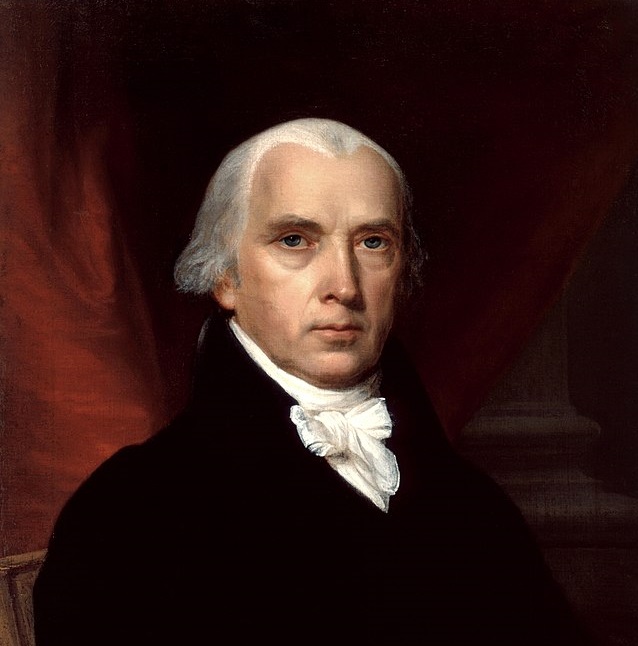
by Richard Subber | Sep 21, 2023 | American history, Book reviews, Books, History, Power and inequality
who believes President Madison didn’t do it?…
Book review:
The Other Madisons: The Lost History of a President’s Black Family
by Bettye Kearse
Boston, MA: Houghton Mifflin Harcourt, 2020
253 pages
Bettye Kearse has written her convincingly detailed book about her family tradition that President James Madison is her relative, six generations back.
Her belief is that Madison fathered a son (Jim, a slave) with Coreen, a black slave cook in his household, and that James and Jim are in the long line of Kearse family grandfathers.
There is no objective proof of the Madison connection, but it’s way too easy to believe that this slave-owning president did what so many other white men did with so many of their slave women in the early 19th century.
I wonder how many “black” Americans have white ancestors?
I wonder how many “white” Americans have black ancestors?
* * * * * *
Book review. Copyright © Richard Carl Subber 2023 All rights reserved.
“Many waters cannot quench love.”
Love will rise to meet you…
(what you hear is poetry)
Book review: St. Ives
by Robert Louis Stevenson
–
My first name was rain: A dreamery of poems with 53 free verse and haiku poems,
and the rest of my poetry books are for sale on Amazon (paperback and Kindle)
and free in Kindle Unlimited, search Amazon for “Richard Carl Subber”
* * * * * *

by Richard Subber | Sep 17, 2023 | Book reviews, Books, History, World history
Samarkand…been there?
Book review:
A Short History of the World in 50 Places
by Dr. Jacob F. Field
London: Michael O’Mara Boos Limited, 2020
288 pages
Field’s intriguing approach to history is a success.
Probably you don’t know much about the great city of Samarkand, south of the Aral Sea in Asia. Its history begins in the 7th century BC, and it was an important commercial stop on the Silk Road until the 15th century AD. Samarkand is one of the 50 places.
A Short History is a broad sweep that’s appealing, easy to read, and a lot to learn.
* * * * * *
Book review. Copyright © Richard Carl Subber 2023 All rights reserved.
On the Beach by Nevil Shute (book review)
It isn’t out of date…
–
My first name was rain: A dreamery of poems with 53 free verse and haiku poems,
and the rest of my poetry books are for sale on Amazon (paperback and Kindle)
and free in Kindle Unlimited, search Amazon for “Richard Carl Subber”
* * * * * *

by Richard Subber | Sep 7, 2023 | Joys of reading, Language, My poetry, Poetry
…let the chorus turn you…
Symphony
A new book
somehow sings a siren’s song,
a symphony of words
that make a new tune,
such delight to open any page,
and hear the mezzo’s lilt,
the soprano’s tear-stained kyrie,
and nod as the basso
closes a chapter
with words worth repeating,
and let the chorus turn you
to another page,
for more words
that suddenly are not strangers,
such old words
that make a new song.
Rumford, RI
May 30, 2023
Let yourself watch your 12-year-old granddaughter with a new book…does this poem occur to you?
* * * * * *
My poetry. Copyright © Richard Carl Subber 2023 All rights reserved.
The Scarlet Letter, victim of Hollywood
the Nathaniel Hawthorne version is best
–
As with another eye: Poems of exactitude with 55 free verse and haiku poems,
and the rest of my poetry books are for sale on Amazon (paperback and Kindle)
and free in Kindle Unlimited, search Amazon for “Richard Carl Subber”
Your comments are welcome—tell me what you’re thinking.
* * * * * *

by Richard Subber | Sep 5, 2023 | Book reviews, Books, History, World history
more than one Christianity…
Book review:
Christendom:
The Triumph of a Religion, AD 300-1300
by Peter Heather (b1960
New York: Alfred A. Knopf, 2022
704 pages
Christendom is not a cheerleading book written by a true believer.
Heather makes it plain that Christianity never had an unchallenged inside track to be the dominant religion in the Western world, although it has predominated for centuries.
There was more than one variety of Christianity from the beginning, and papal leadership was not established until the 11th century.
Christian leadership is a largely manmade circumstance.
The reader has the opportunity to learn much about the Christian church and Christendom that was unacknowledged until historians started to dig deeper in the modern era.
* * * * * *
Book review. Copyright © Richard Carl Subber 2023 All rights reserved.
Book review: Seven Gothic Tales
by Isak Dinesen,
lush and memorable stories…
–
Above all: Poems of dawn and more with 73 free verse poems,
and the rest of my poetry books are for sale on Amazon (paperback and Kindle)
and free in Kindle Unlimited, search Amazon for “Richard Carl Subber”
* * * * * *

by Richard Subber | Aug 31, 2023 | American history, Book reviews, Books, History, Revolutionary War
a primary mover
Book review:
The Revolutionary: Samuel Adams
by Stacy Schiff (b1961)
New York: Little, Brown and Company, 2022
422 pages
If this is your first encounter with Stacy Schiff, you can guess it won’t be your last.
She writes powerful prose that makes you want to linger over the words, to learn more deeply, and to experience her transformation of history into something believable and real.
Samuel Adams was a primary mover of the American revolution.
The British loyalists on this side of the pond and the king and Parliament on the other side recognized his vital role in bringing the colonial Americans around to their ultimate decision to cut the ties that bound them to England and its king.
Samuel Adams tells a whole lot more about the story of the man than you learned before.
Take some time to read it.
* * * * * *
Book review. Copyright © Richard Carl Subber 2023 All rights reserved.
Book review: Hag-Seed
by Margaret Atwood…it ain’t Shakespeare
–
Above all: Poems of dawn and more with 73 free verse poems,
and the rest of my poetry books are for sale on Amazon (paperback and Kindle)
and free in Kindle Unlimited, search Amazon for “Richard Carl Subber”
* * * * * *

by Richard Subber | Aug 24, 2023 | American history, Book reviews, Books, History, Human Nature
you can’t change your socks…
Book review:
With the Old Breed: At Peleliu and Okinawa
by Eugene B. Sledge (1923-2001)
New York: Oxford University Press, 1981
326 pages
Marine Cpl. Eugene B. Sledge (his Marine buddies called him “Sledgehammer”) knew there is no glory in combat. There is fear, comradeship, pain, duty, hunger, honesty, sadness, loyalty, and death.
With the Old Breed is a shockingly restrained and horribly candid account of Sledge’s experiences in the attacks on Peleliu and Okinawa by the 3rd Battalion, 5th Regiment, of the 1st Marine Division in the last year of World War II.
Read it, and you can mumble their prayers as you share the troubled joy of combat soldiers who survive the fighting in which their friends die.
* * * * * *
Book review. Copyright © Richard Carl Subber 2023 All rights reserved.
“Inner child”…a haiku poem
Remember how the merry-go-round
was a real challenge, the first time?
–
My first name was rain: A dreamery of poems with 53 free verse and haiku poems,
and the rest of my poetry books are for sale on Amazon (paperback and Kindle)
and free in Kindle Unlimited, search Amazon for “Richard Carl Subber”
* * * * * *





